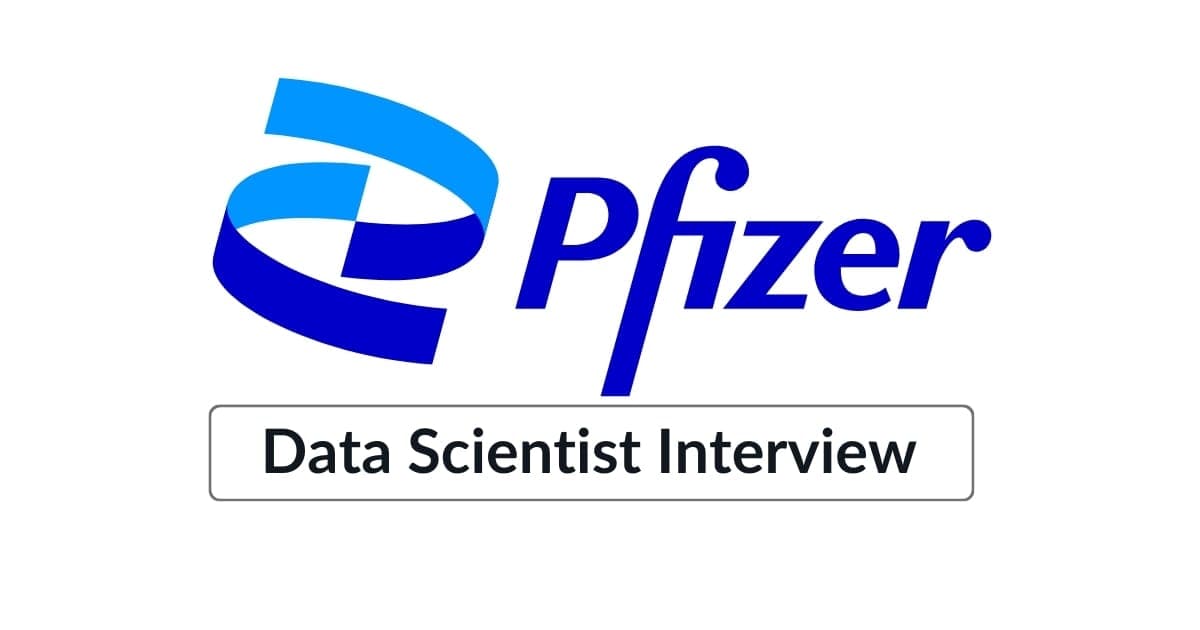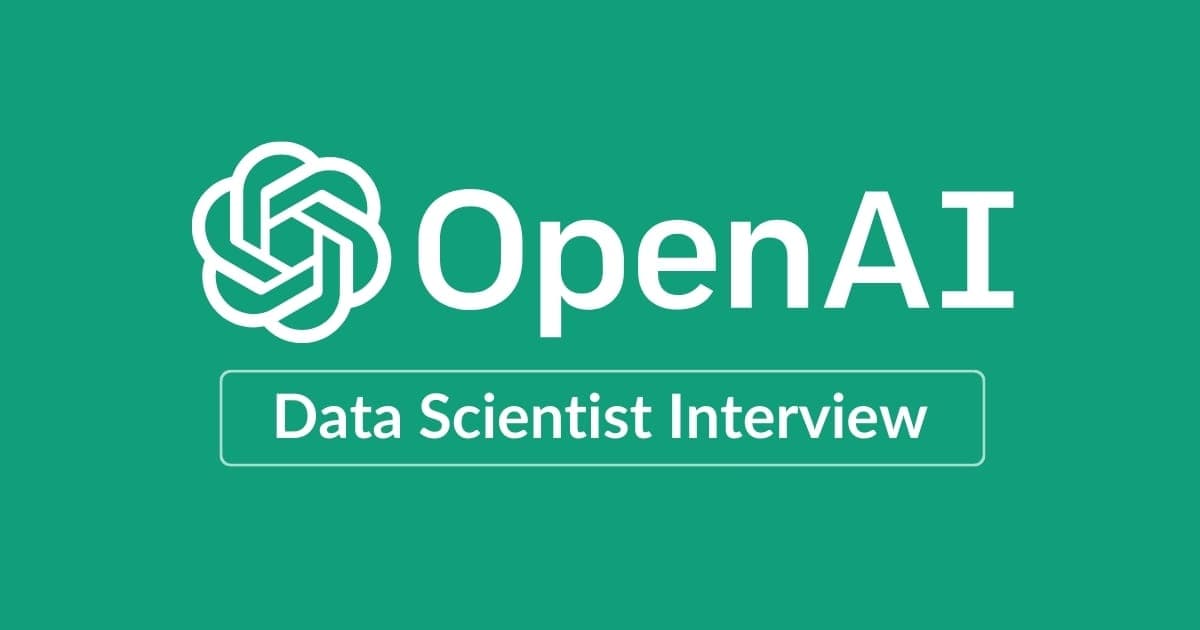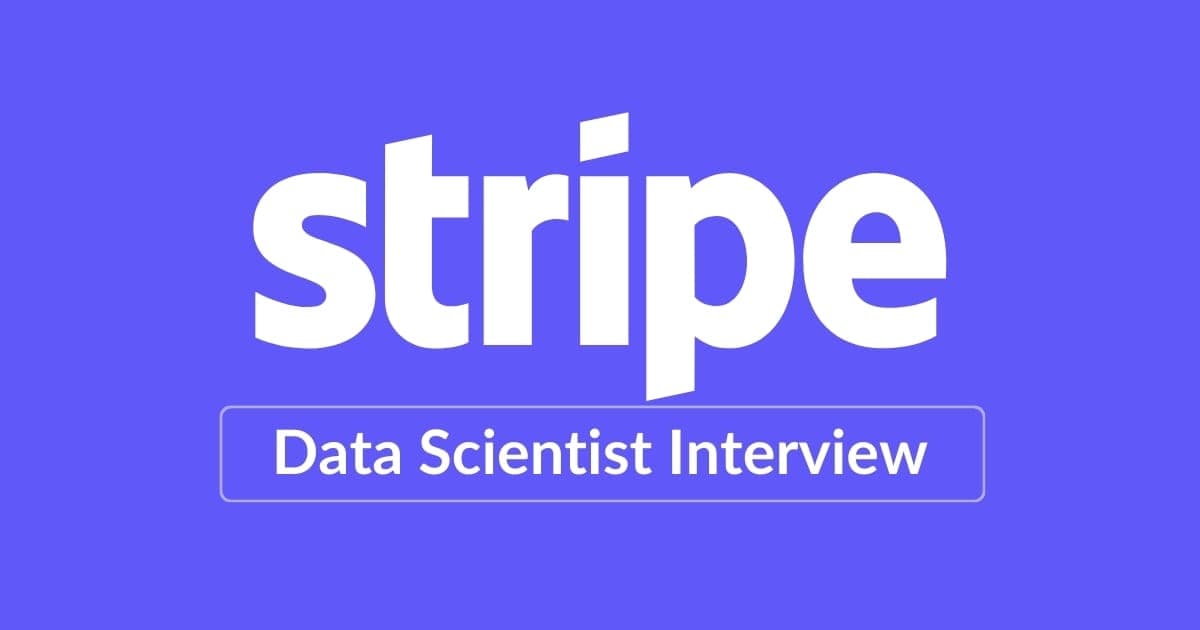Are you preparing for a Data Scientist interview at Siemens? This comprehensive guide will provide you with insights into Siemens’ interview process, the essential skills they seek, and strategies to help you excel.
As a leading global technology company, Siemens is at the forefront of innovation, and their Data Scientist roles are crucial in driving advancements across various sectors. Whether you are an experienced data professional or looking to make your mark in the field, understanding Siemens’ unique interview approach can significantly enhance your chances of success.
In this blog, we will explore the interview structure, highlight the types of questions you can expect, and share valuable tips to help you navigate each stage with confidence.
Let’s dive in 👇
1. Siemens Data Scientist Job
1.1 Role Overview
At Siemens, Data Scientists play a pivotal role in driving innovation and efficiency across various sectors, including Information Technology and Research & Development. This position requires a unique combination of technical prowess, analytical skills, and business insight to extract meaningful insights from complex datasets. As a Data Scientist at Siemens, you will work collaboratively with diverse teams to tackle intricate problems and contribute to the development of cutting-edge solutions.
Key Responsibilities:
- Develop and implement data science solutions to enhance Siemens' product offerings and operational processes.
- Collaborate with cross-functional teams to integrate data-driven insights into business strategies.
- Analyze large datasets to identify trends and generate actionable insights that inform decision-making.
- Create predictive models and machine learning algorithms to solve complex business challenges.
- Design and conduct experiments to evaluate the impact of strategic initiatives.
- Ensure data integrity and build robust data pipelines to support analytics projects.
- Communicate findings effectively to stakeholders across various departments.
Skills and Qualifications:
- Proficiency in programming languages such as Python and R.
- Experience with machine learning techniques and data modeling.
- Strong analytical and problem-solving skills.
- Familiarity with data visualization tools and techniques.
- Ability to work collaboratively in a team environment.
- Excellent communication skills to convey complex data insights to non-technical audiences.
1.2 Compensation and Benefits
Siemens offers a competitive compensation package for Data Scientist roles, reflecting its commitment to attracting skilled professionals in the data, machine learning, and AI fields. The compensation structure includes a base salary, performance bonuses, and stock options, along with various benefits that support employee well-being and career development.
Example Compensation Breakdown by Level:
| Level Name | Total Compensation | Base Salary | Stock (/yr) | Bonus |
|---|---|---|---|---|
| T7 (Junior Data Scientist) | $79.5K | $73.5K | $0 | $6.1K |
| T8 (Data Scientist) | $118K | $115K | $0 | $3.8K |
| Senior Data Scientist | $120K | Not Specified | Not Specified | Not Specified |
| Principal Data Scientist | $183.7K | Not Specified | Not Specified | Not Specified |
Additional Benefits:
- Comprehensive health and dental insurance.
- Retirement savings plans with company matching.
- Flexible work arrangements to promote work-life balance.
- Professional development opportunities, including training and certifications.
- Employee discounts on Siemens products and services.
Tips for Negotiation:
- Research industry standards for data scientist compensation in your region to understand the market range.
- Consider the total compensation package, including bonuses and benefits, when evaluating offers.
- Emphasize your unique skills and experiences during negotiations to strengthen your position.
Siemens' compensation structure is designed to reward talent and innovation, making it an attractive option for data professionals. For more details, visit Siemens' careers page.
2. Siemens Data Scientist Interview Process and Timeline
Average Timeline: 4-6 weeks
2.1 Resume Screen (1-2 Weeks)
The first stage of Siemens' Data Scientist interview process is a resume review. Recruiters assess your background to ensure it aligns with the job requirements. Given the competitive nature of this step, presenting a strong, tailored resume is crucial.
What Siemens Looks For:
- Proficiency in Python, SQL, and machine learning techniques.
- Experience in statistical modeling and data analysis.
- Projects that demonstrate problem-solving skills and innovation.
- Ability to work with large datasets and develop data-driven solutions.
Tips for Success:
- Highlight experience with machine learning models, data analysis, and statistical techniques.
- Emphasize projects involving data-driven decision-making and problem-solving.
- Use keywords like "machine learning," "data analysis," and "statistical modeling."
- Tailor your resume to showcase alignment with Siemens' focus on innovation and technology.
2.2 Recruiter Phone Screen (20-30 Minutes)
In this initial call, the recruiter reviews your background, skills, and motivation for applying to Siemens. They will provide an overview of the interview process and discuss your fit for the Data Scientist role.
Example Questions:
- Can you describe a time when your data analysis led to a significant business impact?
- What tools and techniques do you use for data cleaning and analysis?
- How have you collaborated with cross-functional teams in the past?
Prepare a concise summary of your experience, focusing on key accomplishments and business impact.
2.3 Technical Screen (45-60 Minutes)
This round evaluates your technical skills and problem-solving abilities. It typically involves technical questions related to data science, including machine learning, algorithms, and statistical analysis.
Focus Areas:
- Machine Learning: Discuss model evaluation metrics, feature engineering, and algorithm selection.
- Statistical Analysis: Explain concepts like hypothesis testing and regression analysis.
- Data Manipulation: Write SQL queries and perform data transformations.
Preparation Tips:
Consider mock interviews or coaching sessions to simulate the experience and receive tailored feedback. This can help you fine-tune your responses and build confidence.
2.4 Onsite Interviews (3-5 Hours)
The onsite interview typically consists of multiple rounds with data scientists, managers, and cross-functional partners. Each round is designed to assess specific competencies.
Key Components:
- Technical Challenges: Solve exercises that test your ability to manipulate and analyze data effectively.
- Real-World Business Problems: Address complex scenarios involving data analysis and machine learning models.
- Behavioral Interviews: Discuss past projects, collaboration, and adaptability to demonstrate cultural alignment with Siemens.
Preparation Tips:
- Review core data science topics, including statistical testing, machine learning algorithms, and data manipulation.
- Research Siemens' products and services, and think about how data science could enhance them.
- Practice structured and clear communication of your solutions, emphasizing actionable insights.
For Personalized Guidance:
Consider mock interviews or coaching sessions to simulate the experience and receive tailored feedback. This can help you fine-tune your responses and build confidence.
Siemens Data Scientist Interview Questions
Probability & Statistics Questions
Probability and statistics questions assess your understanding of statistical concepts and your ability to apply them to real-world data problems.
Example Questions:
- Explain the difference between Type I and Type II errors in hypothesis testing.
- How would you test if a coin is fair?
- Describe the Central Limit Theorem and its significance in statistics.
- What is the p-value and how is it used in hypothesis testing?
- How do you handle missing data in a dataset?
- Explain the concept of confidence intervals and how they are constructed.
- What is the difference between correlation and causation?
For more on statistics, check out the Applied Statistics Course.
Machine Learning Questions
Machine learning questions evaluate your knowledge of algorithms, model building, and problem-solving techniques applicable to Siemens' projects.
Example Questions:
- Explain the bias-variance tradeoff in machine learning.
- How would you handle an imbalanced dataset when building a classification model?
- Describe the process of feature selection and why it is important.
- What is cross-validation and why is it used in model evaluation?
- How do you choose the right machine learning algorithm for a given problem?
- Explain the concept of overfitting and how to prevent it.
- What are ensemble methods and how do they improve model performance?
Enhance your machine learning skills with the Machine Learning Course.
SQL Questions
SQL questions assess your ability to manipulate and analyze data using complex queries. Below are example tables Siemens might use during the SQL round of the interview:
Employees Table:
| EmployeeID | Name | Department | JoinDate | Salary |
|---|---|---|---|---|
| 1 | John Doe | Data Science | 2021-05-15 | 85000 |
| 2 | Jane Smith | Engineering | 2020-03-22 | 95000 |
| 3 | Emily Davis | Data Science | 2019-11-01 | 90000 |
Projects Table:
| ProjectID | ProjectName | Department | StartDate | EndDate |
|---|---|---|---|---|
| 101 | AI Development | Data Science | 2023-01-10 | 2023-06-10 |
| 102 | Infrastructure Upgrade | Engineering | 2022-09-15 | 2023-03-15 |
| 103 | Data Analysis | Data Science | 2023-02-01 | 2023-07-01 |
Example Questions:
- Department Salary: Write a query to calculate the average salary by department.
- Project Duration: Write a query to find projects that lasted more than 6 months.
- Employee Projects: Write a query to list all employees in the Data Science department who worked on projects in 2023.
- Recent Hires: Write a query to find employees who joined in the last two years.
- Project Overlap: Write a query to identify projects that overlap in their timelines.
Business Case Studies Questions
Business case studies questions assess your ability to analyze business problems and propose data-driven solutions.
Example Questions:
- How would you approach evaluating the success of a new product launch at Siemens?
- What metrics would you consider to assess the performance of a marketing campaign?
- Describe a strategy to optimize the supply chain process using data analysis.
- How would you identify potential areas for cost reduction in a manufacturing process?
- What data would you analyze to improve customer satisfaction for Siemens' services?
- How would you prioritize projects in a resource-constrained environment?
- What factors would you consider when expanding Siemens' operations into a new market?
Learn how to tackle business cases with the Case in Point Course.
4. How to Prepare for the Siemens Data Scientist Interview
4.1 Understand Siemens' Business Model and Products
To excel in open-ended case studies at Siemens, it’s crucial to understand their diverse range of products and services. Siemens operates across various sectors, including Information Technology, Research & Development, and manufacturing, with a focus on innovation and efficiency.
Key Areas to Understand:
- Product Offerings: Familiarize yourself with Siemens' products, such as automation technologies, digital services, and smart infrastructure solutions.
- Business Impact: Understand how data science can enhance Siemens' product offerings and operational processes.
- Innovation Focus: Explore Siemens' commitment to driving technological advancements and sustainability.
Understanding these aspects will provide context for tackling business case questions, such as proposing data-driven strategies to optimize Siemens' operations or enhance product features.
4.2 Master Technical Skills
Siemens places a strong emphasis on technical proficiency, making it essential to hone your skills in programming, machine learning, and data analysis.
Key Focus Areas:
- Programming Languages: Proficiency in Python and R is crucial for developing data science solutions.
- Machine Learning: Understand model evaluation metrics, feature engineering, and algorithm selection.
- Data Manipulation: Practice writing complex SQL queries and performing data transformations.
Consider enrolling in a Data Scientist Interview Bootcamp to strengthen these skills and gain practical experience.
4.3 Develop Strong Analytical and Problem-Solving Skills
Siemens values data scientists who can extract meaningful insights from complex datasets and solve intricate business challenges.
Key Areas to Focus On:
- Statistical Analysis: Be prepared to discuss concepts like hypothesis testing and regression analysis.
- Data-Driven Decision Making: Highlight your experience in using data to inform strategic business decisions.
- Problem-Solving Techniques: Showcase your ability to tackle real-world business problems with data-driven solutions.
Engage in mock interviews or coaching sessions to receive tailored feedback and enhance your problem-solving capabilities.
4.4 Communicate Effectively
Effective communication is key to conveying complex data insights to non-technical stakeholders at Siemens.
Tips for Success:
- Clear Communication: Practice explaining technical concepts in simple terms to diverse audiences.
- Storytelling with Data: Use data visualization tools to create compelling narratives that highlight key insights.
- Collaborative Approach: Demonstrate your ability to work collaboratively with cross-functional teams.
Consider practicing with peers or engaging in coaching services to refine your communication skills.
4.5 Align with Siemens' Values
Siemens values innovation, collaboration, and sustainability. Aligning your preparation with these values is crucial for demonstrating cultural fit during interviews.
Core Values:
- Commitment to innovation and technological advancement.
- Collaboration across diverse teams and disciplines.
- Dedication to sustainable and efficient solutions.
Showcase Your Fit:
Reflect on your experiences where you:
- Innovated on existing processes or products.
- Collaborated effectively with diverse teams to achieve shared goals.
- Used data to create sustainable and efficient solutions.
Highlight these examples in behavioral interviews to authentically demonstrate alignment with Siemens' mission and values.
5. FAQ
- What is the typical interview process for a Data Scientist at Siemens?
The interview process generally includes a resume screening, a recruiter phone screen, a technical interview, and onsite interviews. The entire process typically spans 4-6 weeks. - What skills are essential for a Data Scientist role at Siemens?
Key skills include proficiency in programming languages such as Python and R, experience with machine learning techniques, strong analytical and problem-solving abilities, and familiarity with data visualization tools. - How can I prepare for the technical interviews?
Focus on practicing SQL queries, machine learning algorithms, and statistical concepts. Engage in mock interviews to simulate the experience and refine your problem-solving skills with real-world data scenarios. - What should I highlight in my resume for Siemens?
Emphasize your experience with data analysis, machine learning projects, and any collaborative work with cross-functional teams. Tailor your resume to showcase your technical skills and alignment with Siemens' focus on innovation and efficiency. - How does Siemens evaluate candidates during interviews?
Candidates are assessed on their technical skills, problem-solving capabilities, and cultural fit. Siemens places a strong emphasis on collaboration, innovation, and the ability to communicate complex data insights effectively. - What is Siemens' mission?
Siemens' mission is to drive innovation and efficiency across various sectors, focusing on sustainable solutions and technological advancements that enhance the quality of life. - What are the compensation levels for Data Scientists at Siemens?
Compensation for Data Scientists at Siemens varies by level, with junior roles starting around $79.5K and senior positions reaching up to $183.7K annually, including base salary, bonuses, and stock options. - What should I know about Siemens' business model for the interview?
Understanding Siemens' diverse range of products and services, including automation technologies and digital services, is crucial. Familiarity with how data science can enhance these offerings will be beneficial for case study questions. - What are some key metrics Siemens tracks for success?
Key metrics include operational efficiency, product performance, customer satisfaction, and innovation impact, which are essential for evaluating the effectiveness of data-driven strategies. - How can I align my responses with Siemens' values during the interview?
Highlight experiences that demonstrate your commitment to innovation, collaboration, and sustainability. Discuss how you have used data to drive impactful solutions that align with Siemens' mission and values.



